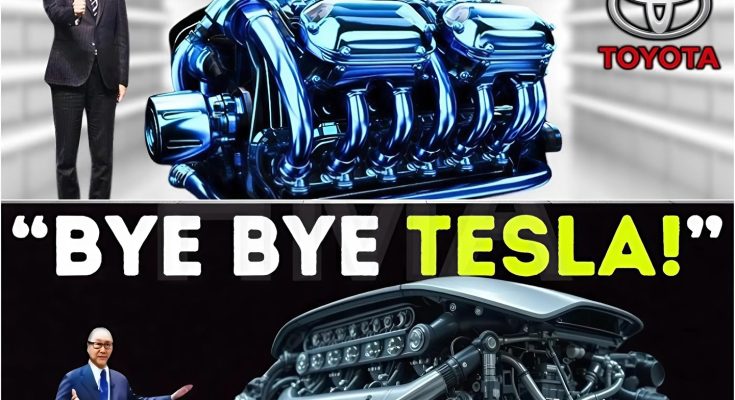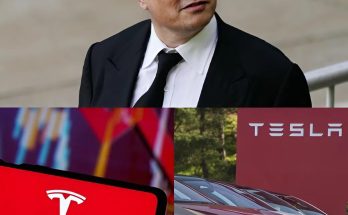In a bold and provocative statement, Toyota’s CEO claimed that the company’s latest technology has the potential to disrupt the entire electric vehicle industry. This statement sent shockwaves through the automotive world and sparked a heated debate among industry experts, environmentalists, and consumers. Given the increasing global push toward electric vehicles, the implications of such a statement are far-reaching and multifaceted.

At the heart of Toyota’s claim is its new hydrogen combustion concept, which promises the same performance and efficiency as conventional gasoline engines while significantly reducing emissions. Unlike battery-electric vehicles with lithium-ion batteries, this innovative concept uses hydrogen as fuel and produces only water vapor as a byproduct. Proponents argue that this technology could provide a viable alternative to electric vehicles, particularly in regions where charging infrastructure is limited or consumers are hesitant to adopt battery-powered vehicles.
Proponents of hydrogen technology highlight several advantages. First, hydrogen can be produced from a variety of sources, including renewable energy, making it a more sustainable option on the planet. Furthermore, hydrogen refueling stations can be built more quickly than the infrastructure required for widespread electric vehicle charging. This could potentially ease the transition for customers who fear the hassle and long charging times associated with electric vehicles.

However, the CEO’s claim that this new concept will “destroy” the electric vehicle industry raises critical questions. Critics argue that such a statement is overly ambitious and fails to recognize the significant advances in battery technology. Major automakers are investing heavily in improving battery efficiency, shortening charging times, and improving the overall performance of electric vehicles. For many, switching to electric vehicles is not just a step, but a critical one, toward reducing greenhouse gas emissions and combating climate change.
Furthermore, the infrastructure challenges associated with hydrogen fuel continue to pose a significant hurdle. While hydrogen refueling stations could be developed, the existing network is sparse compared to the growing number of electric vehicle charging stations. This discrepancy poses a challenge to the widespread adoption of hydrogen fuel vehicles and raises doubts about consumer adoption of this technology over the more established electric vehicle market.
Furthermore, the environmental impact of hydrogen production cannot be neglected. While hydrogen itself is purified through combustion, the processes used to produce it can vary greatly in terms of their environmental footprint. Currently, much of the hydrogen produced is derived from natural gas, which causes significant carbon emissions. For hydrogen to be a truly sustainable alternative, the industry must invest in green hydrogen production methods, which are still in their development stages.

This debate also touches on broader automotive industry issues, including the question of innovation versus tradition. Toyota has long been a leader in hybrid technology, but its recent pivot to hydrogen raises questions about whether the company is trying to maintain its market leadership rather than fully committing to an electric future. Critics argue that the company risks being left behind as competitors focus on battery-electric vehicles, which are rapidly gaining market share.
In conclusion, the Toyota CEO’s controversial claim that the new hydrogen concept could disrupt the entire electric vehicle industry has sparked a fierce debate about the future of automotive technology. While hydrogen combustion concepts offer exciting possibilities, the challenges related to infrastructure, production processes, and competition with rapidly evolving electric vehicle technology cannot be ignored. As the automotive landscape continues to evolve, it remains to be seen whether hydrogen will gain significant market share or whether electric vehicles will pave the way to a sustainable future. The stakes are high, and the future of transportation is at stake.



